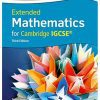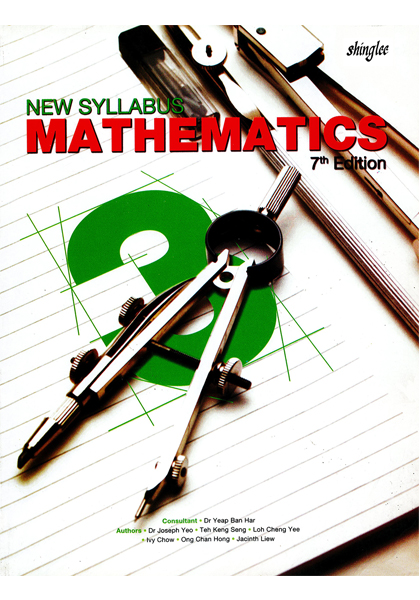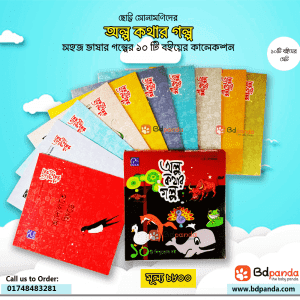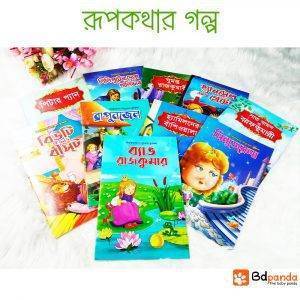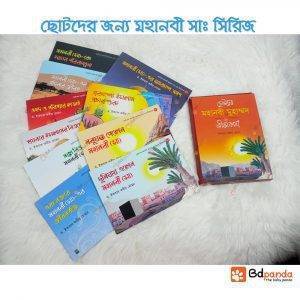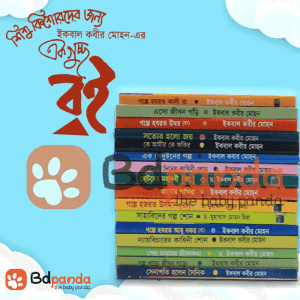New Syllabus Mathematics 3 (7th Edition)
৳ 720.00
Author: Dr Joseph Yeo
Publisher:Shinglee
ISBN: 978-981-237-932-0
Print: Local
Product Description
New Syllabus Mathematics (NSM) is a series of textbooks specially designed to provide valuable learning experiences to engage the hearts and minds of students sitting for the GCE O level examination in Mathematics. Included in the textbooks are Investigation, Class Discussion, Thinking Time, Journal Writing, Performance Task and Problems in Real-world Contexts to support the teaching and learning of Mathematics.
Interesting stories about mathematicians, real-life examples and applications are used to arouse students’ interest and curiosity so that they can appreciate the beauty of Mathematics in their surroundings.
ICT is used where appropriate, to help students visualise and manipulate mathematical objects more easily, thus making the learning of mathematics more interactive.
Key Features:
Chapter Opener
Each chapter begins with a chapter opener to arouse students’ interest and curiosity in learning the topic.
Learning Objectives
Learning objectives help students to be more aware of what they are about to study so that they can monitor their own progress.
Recap
Relevant prerequisites will be revisited at the beginning of the chapter or at appropriate junctures so that students can build upon their prior knowledge, thus creating meaningful links to their existing schema.
Worked Examples
This shows students how to apply what they have learnt to solve related problems and how to present their working clearly. Problem-solving heuristics are included to guide students on approaching Mathematics problems. For ease of use, a suitable heading is included in brackets to distinguish between the different Worked Examples.
Practise Now
At the end of each Worked Example, a similar question will be provided for immediate practice. Where appropriate, this includes further questions of progressive difficulty.
Similar Questions
A list of similar questions in the Exercise is given here to help teachers choose questions that students can do on their own.
Exercise
The questions are classified into three levels of difficulty – Basic, Intermediate and Advanced.
Summary
At the end of each chapter, a succinct summary of the key concepts is provided to help students consolidate what they have learnt. Revision Exercise This is included after every few chapters to help students assess their learning.
Challenge Yourself
Optional problems are included at the end of each chapter to challenge and stretch high ability students to their fullest potential.
Learning experiences have been infused into Investigation, Class Discussion, Thinking Time, Journal Writing and Performance Task.
Investigation
Activities are included to guide students to investigate and discover important mathematical concepts so that they can construct their own knowledge meaningfully.
Class Discussion
Questions are provided for students to discuss in class, with the teacher acting as the facilitator. The questions will assist students to learn new knowledge, think mathematically, and enhance their reasoning and oral communication skills.
Thinking Time
Key questions are also included at appropriate junctures to check if students have grasped various concepts and to create opportunities for them to further develop their thinking.
Journal Writing
Opportunities are provided for students to reflect on their learning and to communicate mathematically. It can also be used as a formative assessment to provide feedback to students to improve on their learning.
Performance Task
Mini projects are designed to develop research and presentation skills in the students.
This series contains marginal notes that provide tips, interesting information or games for the students. These include Problem Solving Tips, Internet Resources, Just For Fun, Attention, Information and Recall.




